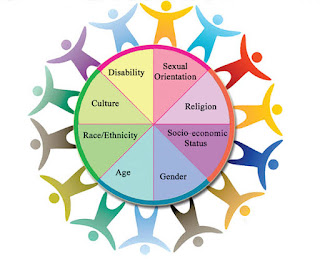CULTURAL AWARENESS: THE IMPORTANCE OF CROSS CULTURAL TRAINING AND LANGUAGE CLASSES
Cultural diversity doesn’t just entail differences in dress and language. It also encompasses different ways of thinking, managing, and communicating. The relationship between communication and culture is a very complex and intimate one. Cultures are created through communication; that is, communication is the means of human interaction through which cultural characteristics are created and shared. People use language for purposeful communication and learning a new language involves learning how to use words, rules and knowledge about language and its use in order to communicate with speakers of the language. In this paper, the first section attempts to illustrate communications and culture transformation; the second section focuses on the ways in which people’s world-views affect languages’ learning, understanding, and interaction; the third section discusses the diverse cultural stratifications between eastern and western cultures’ values.
Emphasis on cross-cultural importance
Having a culturally diverse team can lead to new approaches to problems through new ways of thinking, better communication, and higher output. On the other hand, diversity, if not handled appropriately, can lead to stress, strain and ultimately rupture between colleagues and co-workers. When successful key elements are relocated, and the transition is not done correctly this can often lead to difficulties at work, but also hardship at home, with the family also finding it difficult to adjust to a new way of life and a new way of living internationally. Finding common ground with a universal language is a step in the right direction, and individuals and companies invest in language classes to enhance these communication skills between their co-workers in and out of the work environment, and language penetrates every aspect of life. As Federico Fellini famously said “ A different language is a different vision of life”
Importance of language classes
Nowadays as global citizens, having the ability to speak in a foreign language fluently is fundamental. With English being the go-to language for business and the official language of the 20 most relevant international organizations, a third of the world chit chats in this language, while over a half of the internet is in English, too. English is spoken in 94 countries so brushing up on your communication skills with some language classes or business communication classes will make the difference between success and failure. Families also benefit from the confidence of being able to interact in another language to carry out their daily activities increasing the cultural adaptation process in an international situation. The frameworks that govern our lives play a huge role in determining who we are as people and understanding the drive behind others can lead to greater success and profitability.
How the Cross-cultural and language training improves employee performance
Employee mobility can be seen as a skill that a key worker has, in order to be placed or relocated within a company, either at home or abroad, and like any skill it requires training and practice. A truly mobile employee will be aware of their own cultural background and place in the world and cultural impacts, biases of those they interact with. A culturally aware person is able to build bridges between people and is also a good communicator. While comprehensive mobility programs for employees will take into consideration cultural aspects and cross-cultural training as well as an important language feature to heighten the chances of success for all parties involved.
The reflection of language to the values and beliefs of a culture
The differences between two cultures are reflected perfectly in their languages. Mastering the nuances of a language means really being able to understand people who grew up with an entirely different set of values and beliefs. You have to open yourself up to these differences. Those contrasting values and beliefs can manifest in a variety of ways. Taking a look at common expressions and idioms gives you a glimpse into what a society deems important. But that’s not the only connection between language and culture.
Language reflects our perception of the world
Language affects the way we perceive the world and therefore, it affects how we choose to interact with it.There have been several studies on this. A great example explored by those who study linguistic relativity is the concept of time and space between languages. Others find that when people switch languages they also seem to “switch” their personality to fit the language. That is, they seem to shift their way of thinking to reflect that of the people who speak the respective language. It’s fascinating! Language reflects perception, but it also reflects the history of a culture and explains why certain ideas and beliefs are so prominent and profound. A great way to expose yourself to a culture’s unique perspective and values is to engage with media produced by people from that culture. The FluentU library’s plethora of these very materials will help you take that first step in engaging with a brand new worldview.






Comments
Post a Comment